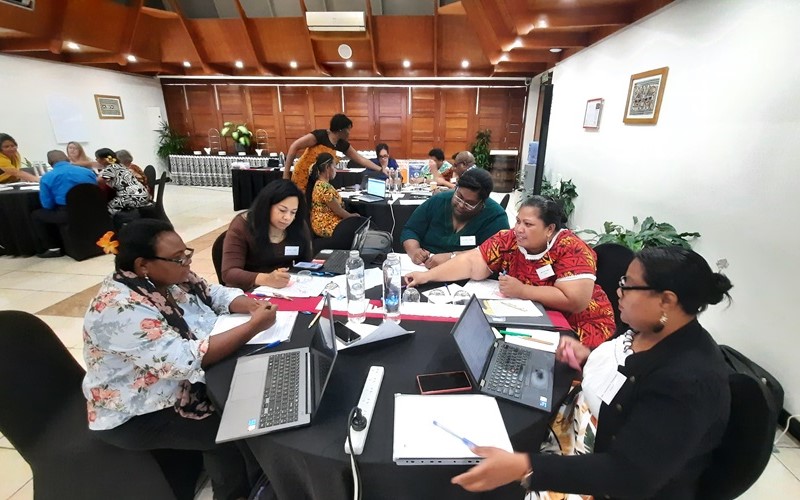
The Commonwealth of Learning (COL) and the Pacific Centre for Flexible and Open Learning for Development (PACFOLD) recently held a three-day regional workshop on Women, Skills and Resilient Livelihoods in the Small States of the Pacific in Nadi, Fiji. The event brought together 25 participants from nine countries– Fiji, Kiribati, Nauru, Papua New Guinea, Samoa, Solomon Islands, Tonga, Tuvalu and Vanuatu (mostly from the non-governmental, not-for-profit sector but also inclusive of six government officials from five countries). The expected outcome was the generation of several new project ideas.
The workshop provided a space for both government and civil society to hold critical discussions on challenges facing girls, women, and persons with disabilities in their various nations. This led to deliberations on ideas that could address some of those challenges. For instance, drug use and violence emerged as challenges where training on peer-based support, counselling and health education was identified as an emergent skill that could provide young women with livelihood opportunities while also addressing a social issue.
The discussions on the potential of technology facilitating social innovations that can create opportunities for skills training and resilient livelihoods were another highlight of the workshop. The case studies that were presented gave new ideas for scalable solutions where participants could visualise and think of adapting some solutions for their own context. This activity is part of a regional project on open, flexible, and distance learning supported by the Ministry of Foreign Affairs and Trade, New Zealand.
Ideation invited participants to reframe challenges in skilling and building resilience. Individually and then collectively, they suggested solutions to shared problems. Building on a foundation of human rights, leadership and financial literacy training, participants co-created targeted interventions into outputs with clear possible outcomes for context-relevant lifelong learning for girls, women and persons with disabilities. One participant’s feedback shows that the approaches used were helpful: “Day 3 was my best day because we were able to solve problems by reframing them from different angles and providing numerous solutions. I find group discussion is the best tool to get work done.”
Dr Karen Nyangara, COL’s Adviser: Gender, commented, “The approaches used during the workshop were new to some participants. COL and PACFOLD kept participants fully engaged and gave them the platform to hear each other’s perspectives on shared issues, rethink solutions to societal challenges and collaboratively plan for social innovation.”


